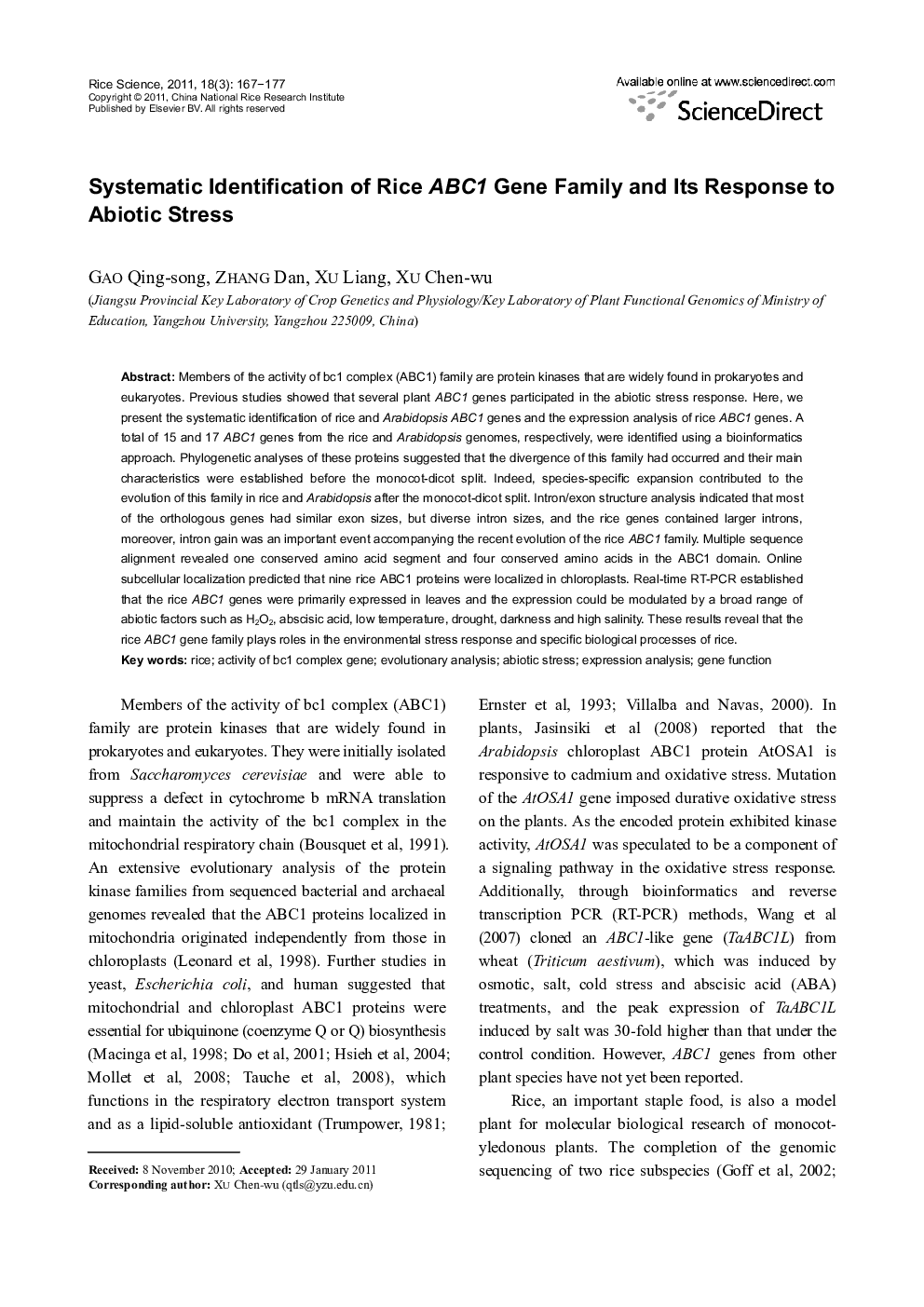| Article ID | Journal | Published Year | Pages | File Type |
|---|---|---|---|---|
| 4502001 | Rice Science | 2011 | 11 Pages |
Members of the activity of bc1 complex (ABC1) family are protein kinases that are widely found in prokaryotes and eukaryotes. Previous studies showed that several plant ABC1 genes participated in the abiotic stress response. Here, we present the systematic identification of rice and Arabidopsis ABC1 genes and the expression analysis of rice ABC1 genes. A total of 15 and 17 ABC1 genes from the rice and Arabidopsis genomes, respectively, were identified using a bioinformatics approach. Phylogenetic analyses of these proteins suggested that the divergence of this family had occurred and their main characteristics were established before the monocot-dicot split. Indeed, species-specific expansion contributed to the evolution of this family in rice and Arabidopsis after the monocot-dicot split. Intron/exon structure analysis indicated that most of the orthologous genes had similar exon sizes, but diverse intron sizes, and the rice genes contained larger introns, moreover, intron gain was an important event accompanying the recent evolution of the rice ABC1 family. Multiple sequence alignment revealed one conserved amino acid segment and four conserved amino acids in the ABC1 domain. Online subcellular localization predicted that nine rice ABC1 proteins were localized in chloroplasts. Real-time RT-PCR established that the rice ABC1 genes were primarily expressed in leaves and the expression could be modulated by a broad range of abiotic factors such as H2O2, abscisic acid, low temperature, drought, darkness and high salinity. These results reveal that the rice ABC1 gene family plays roles in the environmental stress response and specific biological processes of rice.
